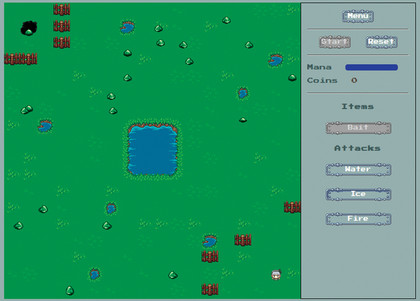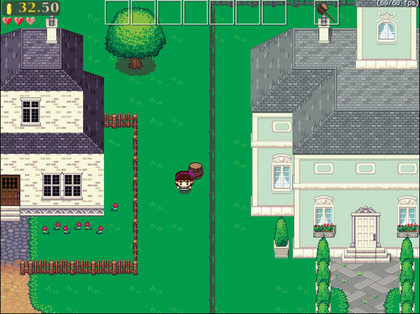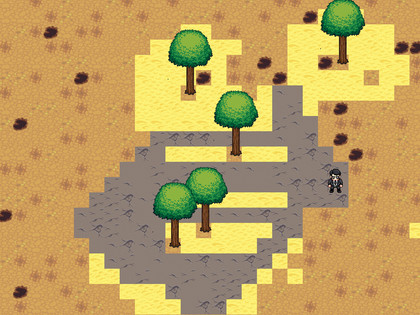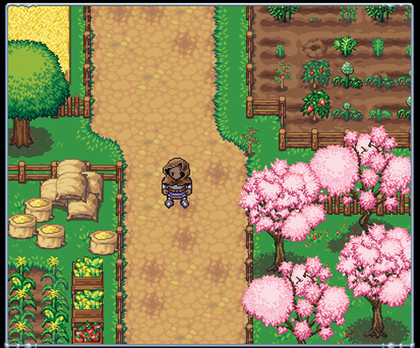How the Liberated Pixel Cup changed gaming on Linux
Inside the competition for the best free Linux games
Slime Attack

Green blobs of slime crawl out of a hole, meandering around the screen until they reach the princess on the other side. Using bits of fence, bait and magic spells, your job is to keep the blobs at bay. It's entertainingly silly and surprisingly tough - you're limited by the amount of fence sections you can build, and you can use magic spells only once every few seconds (due to a mana meter that depletes and restores itself). The developer has included a level design mode, adding considerable longevity to the game. It's a simple concept, executed well, and has that special 'one more go' touch.
Neverwell Moor

We're into classic top-down action-RPG territory with this game. It's beautifully presented, with a touching intro story and gorgeous pixel art, although the music is painfully repetitive. It's quite small right now - there are just a handful of items to collect and things to swap with villagers, and clearly the plot needs fleshing out more. But you can talk to people, collect coins, fight snakes with a giant mallet and explore an island - if anyone wants to expand it with more content, that'd make us very happy bunnies.
Terramancers

Imagine Reversi (aka Othello), the classic disc-flipping board game, and then make it real-time. In Terramancers, you control a character walking around a grid, and each tile you step on becomes yours. If you step on a tile that has a direct line of sight to another you own, the whole line is yours. But the computer is also racing to dominate space; once all tiles are owned, whoever took the most wins. Run it with java -jar Terramancers.jar, and you'll have to rename resources/Characters/Professor.png to its lower-case equivalent as well.
AfterImage

This is our favourite of the lot. It's also a top-down action RPG, with a great little intro, lots of polish and plenty to see and explore. The battle system is somewhat unusual: when you come across an enemy, you use the arrow keys to switch into one of four positions around it, from which you can attack. Another neat feature is the Desolation, an alternative Dark World-like version of the main map. You can switch to it with the R key, which is useful for getting past things that are blocking your way. Really, really promising.
The man at the helm

Chris Webber started the LPC, with help from OpenGameArt and the FSF. We asked him about the ups and downs of running the contest, how the judging phase is going, and what next year's LPC could look like…
Linux Format: It looks as if the fundraising attempt has exceeded its target - how is the money going to be used?
Chris Webber: I posted a blog post on this, detailing how the finances worked out. But the short answer is the money went to artists to pay for the base assets and style guide that was the basis of the Liberated Pixel Cup; and to prizes, except for 10% that went to the Free Software Foundation for handling the overhead. None of the money went back to us. Bart and I both put in over $1,000 each. But it's a cause that we, like the many others who donated, believe in.
Sign up for breaking news, reviews, opinion, top tech deals, and more.
LXF: What takes place in the judging process, and when do you expect it to be finished?
CW: There's two phases to judging, just as there's two phases to the games: judging art, and judging code. The art judging just wrapped up very recently, but the code judging has yet to be announced.
Unfortunately, as the art judging was, it's really quite delayed. This is due to a couple of reasons… first and foremost, Bart Kelsey and I are the primary people driving things. Bart had some personal matters to deal with, and I simultaneously quit Creative Commons to focus on MediaGoblin, was travelling and technically homeless for a couple of weeks right after the submission part of the LPC wrapped up (we were moving between states), and starting to push forward MediaGoblin as a full-time thing. This lead to a lot of delays in even starting things, which was frustrating for everyone.